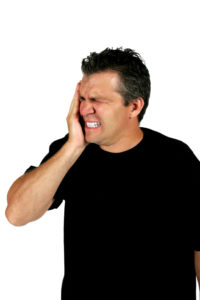 Emergencies by their very nature are stressful and often painful. Dental emergencies for many people have an added layer of anxiety. This happens because many people don’t know what they should do during a dental emergency. Should they call 911? Go to an emergency room? Wait for Monday morning at 8 am to call their dentist? Deal with the pain or damage until their next dental appointment? At LIC Dental associates, our team is here to help whenever patients experience a dental emergency. From toothaches to facial trauma, our skilled dentist and team are here to relieve pain and restore full oral health and smile confidence. The first step for any patient experiencing a dental emergency in Long Island should be to call our office right away. We’ll help you assess your situation, and schedule an appointment to visit us as quickly as possible.
Emergencies by their very nature are stressful and often painful. Dental emergencies for many people have an added layer of anxiety. This happens because many people don’t know what they should do during a dental emergency. Should they call 911? Go to an emergency room? Wait for Monday morning at 8 am to call their dentist? Deal with the pain or damage until their next dental appointment? At LIC Dental associates, our team is here to help whenever patients experience a dental emergency. From toothaches to facial trauma, our skilled dentist and team are here to relieve pain and restore full oral health and smile confidence. The first step for any patient experiencing a dental emergency in Long Island should be to call our office right away. We’ll help you assess your situation, and schedule an appointment to visit us as quickly as possible.
Common Dental Emergencies
First and foremost, if you believe you need emergency dental care, you probably do, so don’t hesitate to contact us. Even if we determine your situation does not require urgent treatment, it’s still important that we begin restoration as quickly as possible to ensure we can achieve completely renewed oral health. However, some of the most common emergencies we treat include:
- Knocked out teeth or dental restorations
- Damaged teeth or dental restorations
- Damaged or bent dentures
- Severe toothache or dental sensitivity
At-Home Care for Common Emergencies
If you’re currently experiencing a dental emergency. Take a few deep breaths and try to assess your situation. Once you feel calm, you can contact our office immediately, and a knowledgeable team member will walk you through how to relieve pain and what first aid steps you can take. Some of the basics of dental first aid are:
- Clean the site with cool water but don’t scrub or brush the area or use mouthwashes
- Use cold compresses to relieve pain, stop bleeding, and prevent inflammation
- Save knocked out teeth or large pieces of tooth that are fractured by replacing them in the socket or storing them in water or milk until your appointment
Avoiding Dental Emergency
You can’ always avoid a dental emergency, but there are some habits you can change and preventive measures you can take to decrease your risk for an emergency. Some of the recommendations we give to help patients avoid emergency dentistry situations include:
- Stop chewing nails, pen caps, ice, and other hard objects
- Do not use your teeth as tools to open packages or crack nuts
- Always wear an athletic mouthguard during sports practices or competitions
- Use protective guards to prevent wear or damage caused by bruxism (nighttime teeth grinding and clenching)
- Brush and floss teeth daily and visit our office at least two times each year
